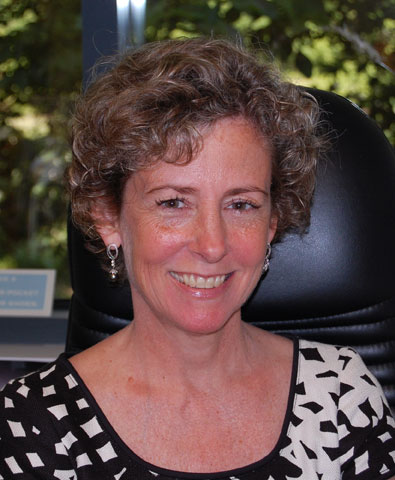As nursing home person-centered care (PCC) collaborations proliferate across the country, assisted living providers have followed suit with their own innovative models for ensuring the provision of PCC.
The Center for Excellence in Assisted Living (CEAL) released in late June the first tool to help providers gauge their ability to provide true PCC to their residents.
The new “Toolkit for Person-Centeredness in Assisted Living” was developed through “a close partnership” between the University of North Carolina at Chapel Hill and CEAL, along with providers, residents, family members, and organizational representatives.
Available to anyone, the toolkit includes questionnaires to be completed by residents and staff, as well as “simple, easy-to-follow instructions for scoring and interpreting the results.”
According to a CEAL press release, the questionnaires measure person-centered practices in assisted living—and have been given the moniker of PC-PAL.
According to the release, PC-PAL questionnaires are based on “research evidence and have been rigorously tested for ease of use and statistical validity.”
Lead researcher for the tool, Sheryl Zimmerman, PhD, notes that its validity comes from the involvement of a range of stakeholders in the developmental process, thus ensuring “that the questionnaires are relevant to and feasible for use by the people living and working in assisted living communities,” she says.
In Wisconsin, Data Submission
Collaboration among stakeholders is a theme that has carried over to the assisted living survey process in recent years. In Wisconsin, Brian Purtell, executive director of the Wisconsin Center for Assisted Living (WiCAL), was instrumental in constructing a survey category that enables qualifying providers to forgo the “routine” and sometimes onerous system in favor of a less frequent and more collaborative process.

As Purtell explains, there are two elements of participation in the WiCAL process, known as the Performance Excellence in Assisted Living (PEAL) program: a resident satisfaction survey and the submission of what’s known as quality variables.
“All of the programs (there are three others) use the same resident satisfaction survey and run it on an annual basis,” says Purtell. “Everyone can compare how they stack up to other facilities in the state. That’s very valuable, as well as congruent with PCC.”
All PEAL participants must submit quality variables on a quarterly basis. They include the number of falls with injury, outbreaks of infection or influenza or norovirus, and hospitalizations, says Purtell. These variables also enable providers to compare themselves against their peers.
“That’s the exciting things we’re doing, and it’s very collaborative," Purtell says. “We have the state regulators, we have ombudsmen involved, we have the four provider associations, and we are working with and have grant funding from the Center for Health Systems Research & Analysis [CHRSA].”
CHRSA is working with the Wisconsin Coalition for Collaborative Excellence in Assisted Living (WCCEAL) to help it develop and implement internal quality assurance and quality improvement throughout its systems.
Purtell notes that the original quality variables were created and launched with the objective of getting people comfortable with tracking and reporting data. “At some point, we will expand to add additional measures,” he says, “but we don’t want to go so far as to replicate the nursing home minimum data set process in the assisted living setting. However, we also have to balance that with benchmarking and tracking so that the Department of Health can say, ‘we did not give these guys a pass.’”
New Jersey Advances With ‘Advance Standing’
Similar to Wisconsin’s designation is New Jersey’s assisted living designation known as Advance Standing, in which providers apply annually and get a pass from the usual survey process. The New Jersey Center for Assisted Living created the category several years ago in conjunction with the state Department of Health.
“It was a very collaborative approach with the department,” says Kathy Fiery, New Jersey Center for Assisted Living’s director of the division of assisted living, alternative care. “Buildings apply through us annually and must have approval to participate in the program from the department. Once they are in the program, they are subject to a compliance visit and they monitor the residence to ensure they are in compliance annually.”
Fiery notes that all buildings must reapply each year and are subject to a compliance visit, “so it ensures the buildings are being seen every year,” she says.

Another key component of the program is the requirement that all Advance Standing participants join the Patient Safety Organization, launched recently by the National Center for Assisted Living (NCAL) in conjunction with the New Jersey Hospital Association’s Institute for Quality and Patient Safety
Organization (PSO) to collect clinical performance data from assisted living members.
In addition to paying for membership with the PSO, all qualifying assisted living providers must pay to participate in the Advance Standing program as well.
What are the benefits of participating in the program? “Besides not being subjected to yearly visit from surveyors, which can be a punitive process, our visits are much more collaborative, albeit as aggressive in finding things,” says Fiery.
“But at the end of the day, these buildings have gone above and beyond the Department of Health’s minimum requirements, and it’s a raise-the-bar-compliance visit. Our consultant will say to members, ‘This is Advance Standing, so we expect that you’re doing more than is required; we expect more from you.’”
What's more, Fiery says, Advance Standing is “much more collaborative, there’s more training, more education, more back and forth. It’s a more pleasant process on the assisted living side than for nursing homes, certainly. And who wants to go through the ‘gotcha’ survey, when you can speak up during the process and tell your staff to ask questions.”
Among the 220 licensed buildings in New Jersey, 73 were accepted into Advance Standing this year. “So it’s clearly a distinction that sets them apart from their neighbors,” Fiery says.
This can be used in marketing and in recruiting staff as well. “It’s really a credential that stands out for them.”
Elsewhere, Colorado began conducting risk-based relicensure inspections for assisted living residences, on a pilot basis, in January 2013.
“Under the new system, assisted living providers meeting criteria specified in the law will be eligible for an extended survey cycle,” according to the “2013 Assisted Living State Regulatory Review,” published by NCAL.